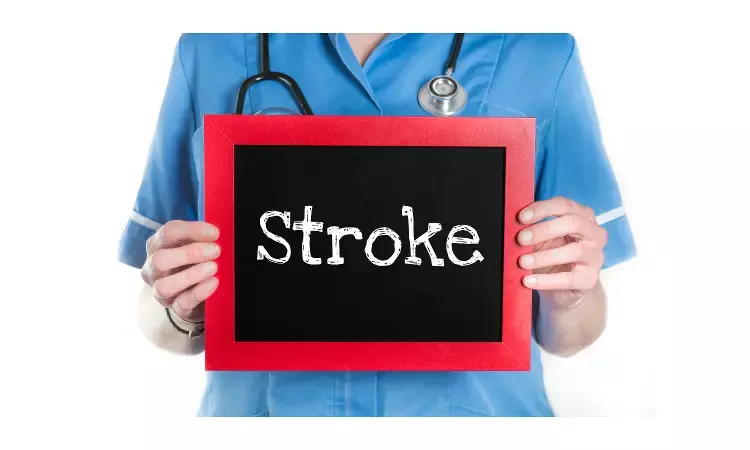- Home
- Medical news & Guidelines
- Anesthesiology
- Cardiology and CTVS
- Critical Care
- Dentistry
- Dermatology
- Diabetes and Endocrinology
- ENT
- Gastroenterology
- Medicine
- Nephrology
- Neurology
- Obstretics-Gynaecology
- Oncology
- Ophthalmology
- Orthopaedics
- Pediatrics-Neonatology
- Psychiatry
- Pulmonology
- Radiology
- Surgery
- Urology
- Laboratory Medicine
- Diet
- Nursing
- Paramedical
- Physiotherapy
- Health news
- Fact Check
- Bone Health Fact Check
- Brain Health Fact Check
- Cancer Related Fact Check
- Child Care Fact Check
- Dental and oral health fact check
- Diabetes and metabolic health fact check
- Diet and Nutrition Fact Check
- Eye and ENT Care Fact Check
- Fitness fact check
- Gut health fact check
- Heart health fact check
- Kidney health fact check
- Medical education fact check
- Men's health fact check
- Respiratory fact check
- Skin and hair care fact check
- Vaccine and Immunization fact check
- Women's health fact check
- AYUSH
- State News
- Andaman and Nicobar Islands
- Andhra Pradesh
- Arunachal Pradesh
- Assam
- Bihar
- Chandigarh
- Chattisgarh
- Dadra and Nagar Haveli
- Daman and Diu
- Delhi
- Goa
- Gujarat
- Haryana
- Himachal Pradesh
- Jammu & Kashmir
- Jharkhand
- Karnataka
- Kerala
- Ladakh
- Lakshadweep
- Madhya Pradesh
- Maharashtra
- Manipur
- Meghalaya
- Mizoram
- Nagaland
- Odisha
- Puducherry
- Punjab
- Rajasthan
- Sikkim
- Tamil Nadu
- Telangana
- Tripura
- Uttar Pradesh
- Uttrakhand
- West Bengal
- Medical Education
- Industry
Hypertriglyceridemia elevates risk of Stroke of Atherothrombotic Origin even in patients on statins

Hyperglycemia also known as high blood glucose is caused because the body lacks enough insulin. Associated with diabetes, hyperglycemia can cause vomiting, excessive hunger and thirst, rapid heartbeat, vision problems and other symptoms. Hypertriglyceridemia is perceived to promote atherosclerotic pathology, but its role in stroke has not been well defined.
Recent study in Neurology by Takao Hoshino and team found that Hypertriglyceridemia is an important modifiable risk factor that drives residual vascular risk in patients with stroke of atherothrombotic origin, even while on statin therapy.
The study aimed to assess the contribution of hypertriglyceridemia to residual vascular risk in patients with atherothrombotic stroke.
Study included the Tokyo Women's Medical University Stroke Registry is an ongoing prospective, observational registry, in which 870 patients with acute ischemic stroke or TIA within 1 week of onset were consecutively enrolled and followed up for 1 year. Hypertriglyceridemia was defined as serum triglycerides levels of ≥150 mg/dL under fasting conditions. Significant stenosis of the cervicocephalic arteries was defined as having 50% or greater stenosis or occlusion. The primary outcome was major adverse cardiovascular events, including nonfatal stroke, nonfatal acute coronary syndrome, and vascular death.
Results of the study were found to be
• Total of 870 patients, 217 (24.9%) had hypertriglyceridemia. High triglycerides levels were significantly associated with an increased prevalence of intracranial artery stenosis, particularly in the anterior circulation, rather than extracranial artery stenosis.
• Patients with hypertriglyceridemia had a greater risk of major adverse cardiovascular events than those without (annual rate, 20.9% vs. 9.7%; P<0.001), even after adjustment for potential confounders, including baseline low-density lipoprotein cholesterol and statin use (adjusted hazard ratio, 2.46; 95% confidence interval, 1.62-3.74).
• The higher risk of vascular events in hypertriglyceridemia versus non-hypertriglyceridemia patients was observed among patients with stroke of atherothrombotic origin (n=174; annual rate, 35.1% vs. 14.2%; P=0.001).
• Those with significant intracranial artery stenosis (n=247; annual rate, 29.9% vs. 14.7%; P=0.006), and those with significant extracranial carotid artery stenosis (n=123; annual rate, 23.0% vs. 9.4%; P=0.042).
• In contrast, hypertriglyceridemia was not predictive of recurrent vascular events in patients with cardioembolic stroke (n=221; annual rate, 19.1% vs. 10.5%; P=0.18)
Authors concluded that "Hypertriglyceridemia is an important modifiable risk factor that drives residual vascular risk in patients with stroke of atherothrombotic origin, even while on statin therapy."
Reference: https://doi.org/10.1212/WNL.0000000000200112
Medical Dialogues consists of a team of passionate medical/scientific writers, led by doctors and healthcare researchers. Our team efforts to bring you updated and timely news about the important happenings of the medical and healthcare sector. Our editorial team can be reached at editorial@medicaldialogues.in.
Dr Kamal Kant Kohli-MBBS, DTCD- a chest specialist with more than 30 years of practice and a flair for writing clinical articles, Dr Kamal Kant Kohli joined Medical Dialogues as a Chief Editor of Medical News. Besides writing articles, as an editor, he proofreads and verifies all the medical content published on Medical Dialogues including those coming from journals, studies,medical conferences,guidelines etc. Email: drkohli@medicaldialogues.in. Contact no. 011-43720751


